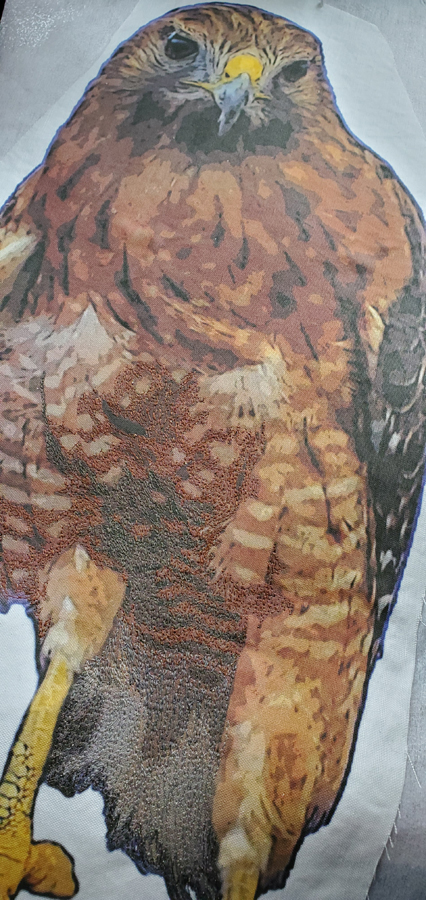 It’s time for me to start working on something new. My days are always a juggle. I am preparing for an art exhibit that opens in June. Three talented friends of mine (2 textile artists and 1 potter) are getting our work ready to show at the Arts Council of Moore County’s Campbell House Galleries.
It’s time for me to start working on something new. My days are always a juggle. I am preparing for an art exhibit that opens in June. Three talented friends of mine (2 textile artists and 1 potter) are getting our work ready to show at the Arts Council of Moore County’s Campbell House Galleries.
It’s always exciting to hang a show. There’s a lot of preparation and pressure beforehand though. Over the past year, I’ve been creating new pieces specifically for this show. This is where the juggling comes in. You probably know that I’ve been teaching too. I find switching between these very different tasks works well for me. I can work several hours (or a full day) on my art, then switch to work on class prep.
Having this type of schedule the last few months has helped me realize the pattern is good for me. The skills are totally different mental processes. It does me good to walk away when I get a bit over-tired of one task. The down-side is I frequently feel like I’m moving too slow.
It’s interesting to learn how people work. For example, some people like to start in the morning and work through the evening, with few or no breaks. There’s also a well documented ultradian rhythm theory, that says humans are more productive if they alternate between 90 minutes of high-intensity work followed by 20 minutes rest (known as the Basic Rest/Activity Cycle – BRAC).
Our society seems to encourage us to power through everything we do. I know I frequently fall into this pattern, also known as: “Hurry up… it needs to get it done yesterday!”
Whether you’re working on your art professionally or for fun, do you ever think about how your work pattern impacts your creativity? It’s interesting to get feedback from others, but it’s more important to pay attention to how it feels to you. I definitely need to take breaks. When I don’t take them, I sense the tension building in my body…. and the quality of my work starts to decrease…which adds more to the tension. A wicked cycle of potential failure. This realization just means it’s going to take awhile to finish thread-painting this big bird. As they say, “it’s a marathon, not a sprint.”
I came across a new report today from the American Psychological Association about stress, and lack thereof, and the effect it has on accomplishment and cognition. I found it interesting I because I usually work best under a deadline. Since retiring 18 months ago and not having the “work stress” anymore, I’m concentrating more on my quilting and it’s keeping my stress level way low. I’m still experiencing some stress, but it’s a comfortable, workable (if that’s possible!) stress. The article is saying that having a healthy level of stress can help you be more creative, have more cognitive functioning, and be more productive. Hmmmmm.
Thanks Cynthi. That is interesting.
How very exciting!! I hope to get an invite or at least a notice of the show!
For sure!